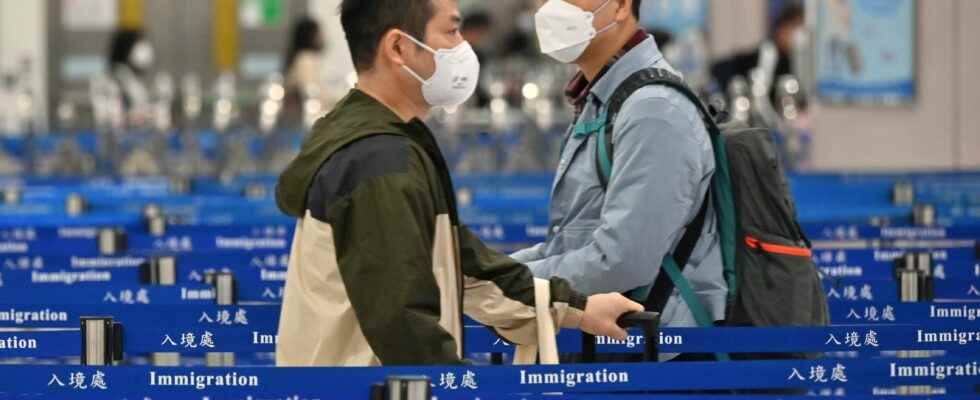They will no longer have to lock themselves in, but they still have to come. China has just lifted this Sunday, January 8, the mandatory quarantine for travelers from abroad, ending three years of self-imposed isolation. At Beijing airport, the barriers that separated international arrivals from national arrivals have disappeared, as have the staff in protective suits against Covid-19.
At the same time, several countries of the European Union are trying to dissuade their nationals who would like to undertake such a journey, and are imposing restrictions on Chinese who would like to take advantage of this relaxation to visit the Old Continent. Because if China gets rid of its “zero Covid” strategy, after three years which have severely affected its economy, the cases, in parallel, explode.
Authorities provide little data on the number of infections or deaths. But for Europeans, there is no doubt: “the health system is overloaded,” said the German Foreign Ministry on Saturday, which currently advises against “non-essential travel to China”. Belgium and Luxembourg issued similar opinions. Because China has a double fragility: low natural immunity and a modest vaccination rate. Between 60 and 80% of the population will have Covid by the end of winter, even certain doctors present in China estimate.
The prospect of a massive influx of Chinese tourists, and the increase in reservations, has prompted more than a dozen countries, including France, Japan, the United States and Germany, to impose screening tests on travelers from China. Since then, the Netherlands, Portugal and Sweden have followed. For its part, the European Union this week strongly encouraged member states to impose screening carried out in China, before the flight, and to supplement this system with “random tests” on arrival in Europe.
Beijing takes offense at European caution
Beijing has denounced “unacceptable” measures imposed on its nationals, although China itself has remained largely closed since 2020 to foreign tourists and international students. In Hong Kong, strict restrictions on travel to and from the rest of China were also eased on Sunday. Some 410,000 Hong Kongers have planned to travel north over the next two months, while around 7,000 people on the mainland are due to travel south on Sunday, according to official data. Hong Kong, whose economy is hit by recession, is eagerly awaiting the resumption of flows. Before the pandemic, mainlanders represented around three-quarters of arrivals.
In China, the already heavy circulation of the virus could worsen further ahead of the Chinese New Year holiday in late January, when millions are expected to leave hard-hit megacities for the countryside to make visit their parents, who are often elderly and vulnerable. If the Chinese strategy still questions a good part of the observers, some note that by not taking new restrictive measures, Beijing has chosen a form of normalization of the virus… Even if it means accepting a certain number of deaths. And to shift the political weight of the restrictions onto other countries.
